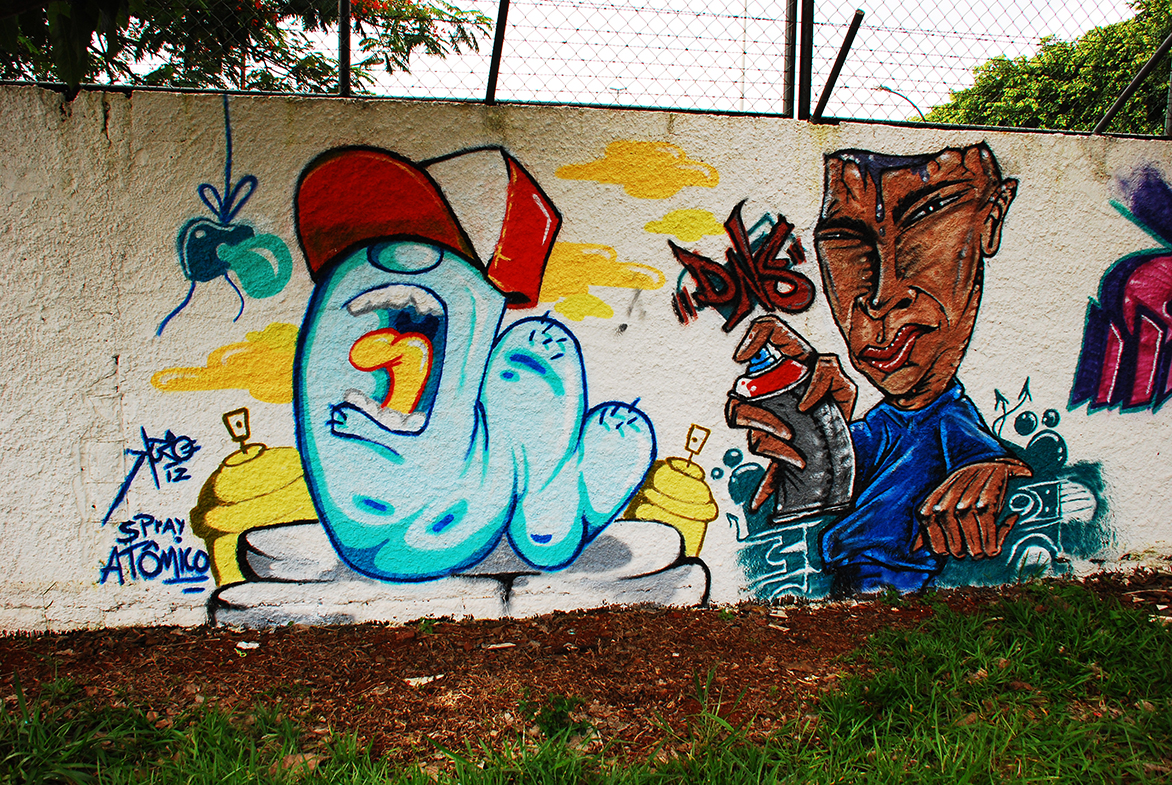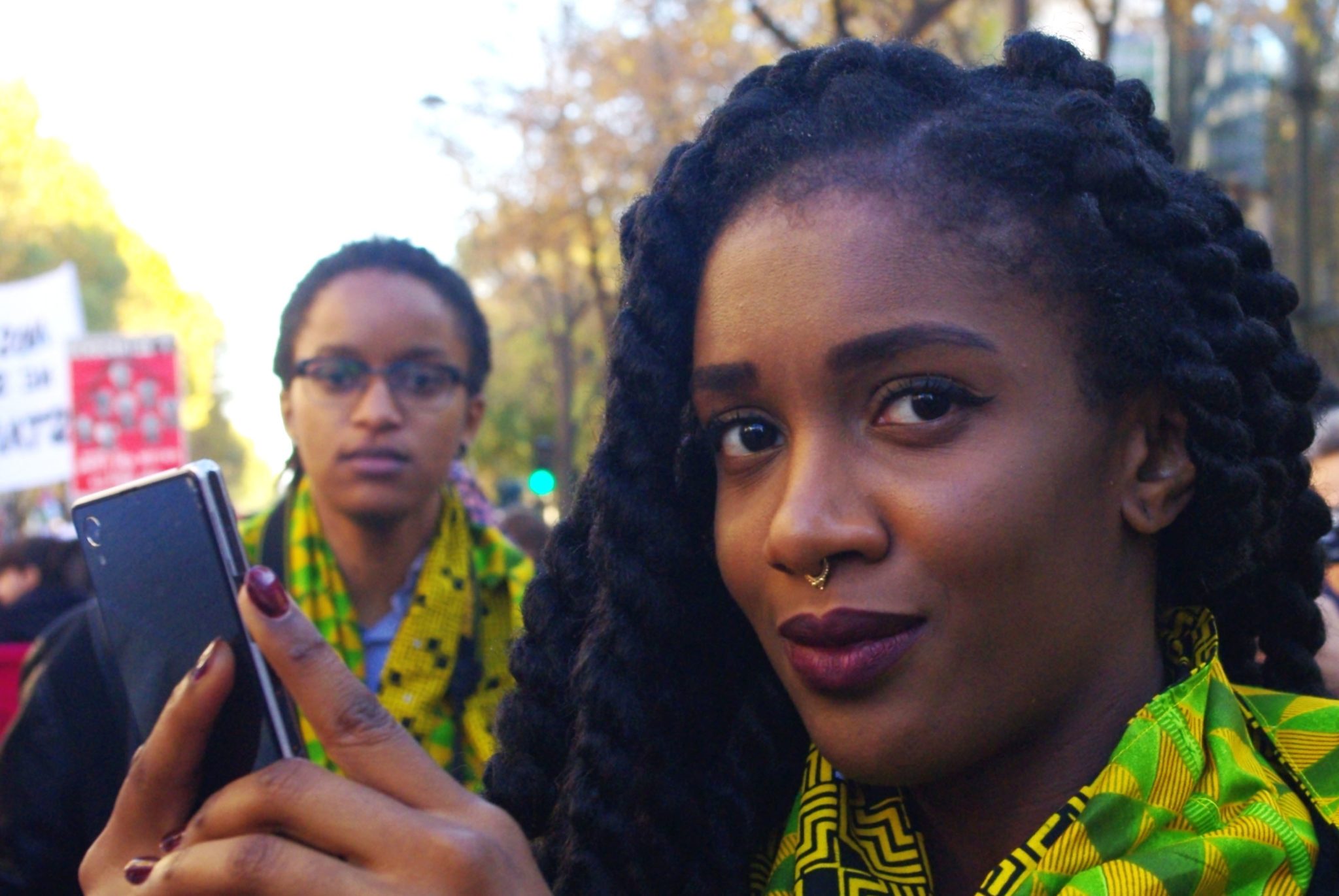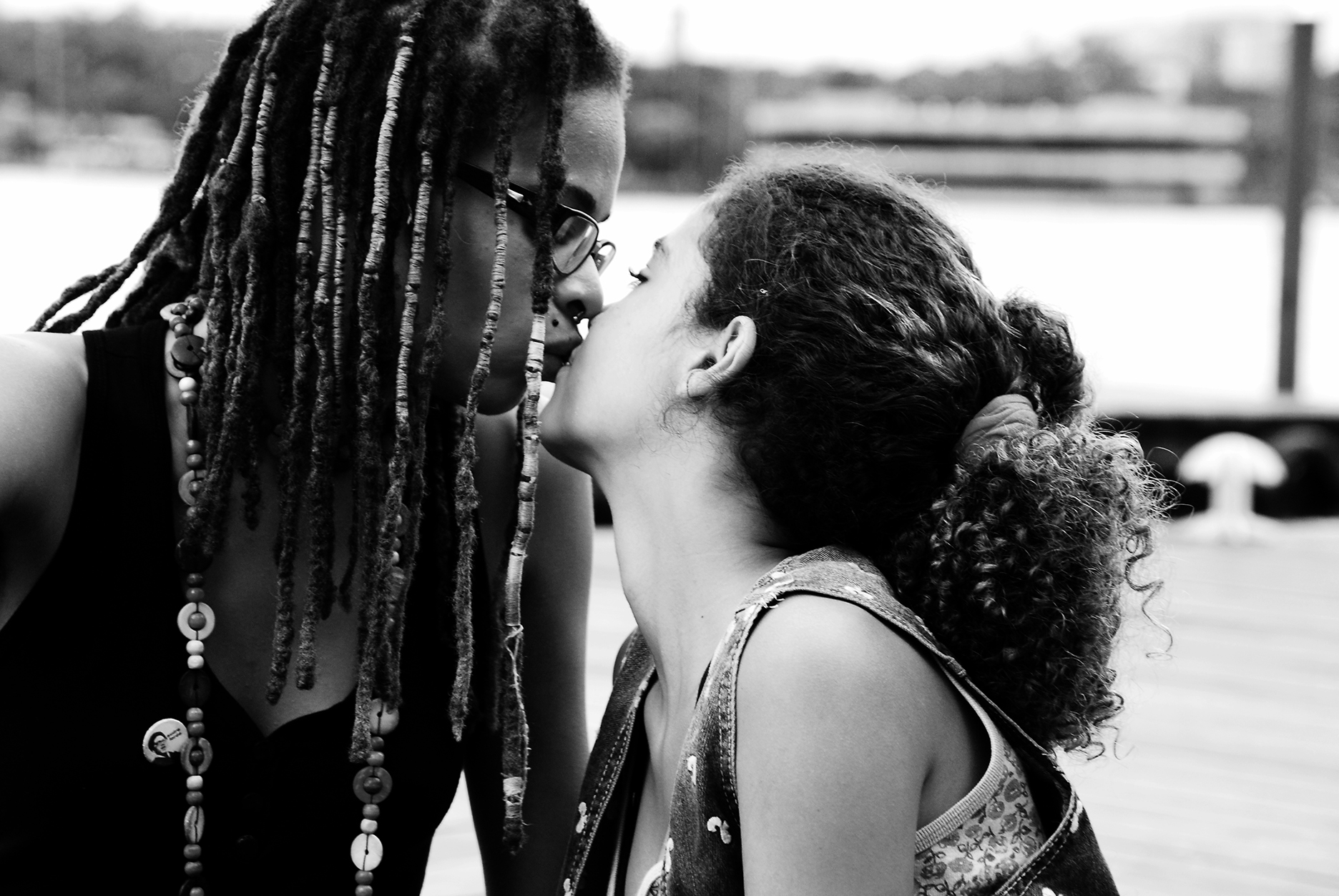Lycinais Jean, or When Zouk Music Comes out of the Closet!
By HomoSenegalensis. Photos by Meggy Theresin
Like many people, I am a big music enthusiast, and I try as much as I can to vary the music I listen to. Recently, I’ve been reconnecting with good old Zouk. A musical movement originally from the Caribbean islands of Martinique and Guadeloupe, Zouk is popular in many francophone African countries. It is distinguished by its rhythmic, sunny melodies that will make you believe in pure and eternal love. However, there is one thing Zouk has in common with most other musical genres: its rather heteronormative view of love and the world.
So you can imagine my surprise when, a few months ago, I came across Lycinais Jean. Songwriter and composer, with a breathtaking voice and an androgynous style that the queer woman I am would not have found unusual, except that I was discovering her through a musical genre like Zouk!
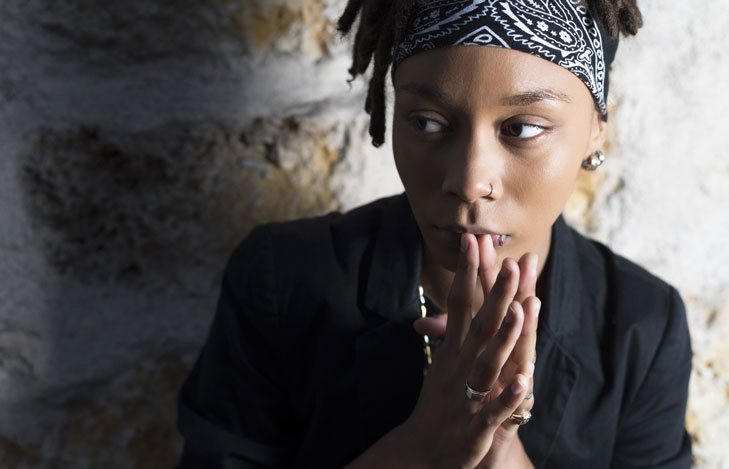

Born in a family of musicians, Lycinais Jean developed her passion for music very early on. Her covers of popular songs, which she shares on her YouTube channel, LYCINAIS JEAN TV, first put her under the spotlight, but her career took a new and dramatic turn after her single, Aimer, which the public immediately fell in love with. Can we blame them? Love makes people dream, and in this song the young woman’s talent is practically hypnotizing.
But it wasn’t until 2015 that this artist really stood out with her track Mwen enmé-w. Here, in her determination to stay true to herself, Lycinais Jean uses the most beautiful melodies and the most passionate words to rekindle an old love with, not a man, but a woman!
Later, she released another track, Sex Therapy, which was even bolder. By the time her most recent track, Entre Nous, was released in 2016, the young woman’s talent and authenticity had nothing left to prove. Listening to a song is one thing. Being able to picture oneself in it is a completely different experience. That Lycinais Jean is talented is undeniable, but what makes all the difference – and makes her work even more fascinating – is the authenticity and
courage that shine out form it. So allow me to share some of my impressions.
From her looks to her audiovisual creations, everything about this young artist from Guadeloupe and Martinique says “I like women and I am comfortable in my skin.” If you don’t believe me, check out Mwen enmé-w, the song in which Lycinais officially comes out to her public, a first in the world of Zouk, where only love between men and women has been the norm. My interest was aroused, and I decided to further explore this exceptional talent.
First, I felt that the marks of affection in her videos were rather moderate, almost timid. Even in Sex Therapy, the track in which the singer alludes to physical love between two women, the scenes remain sensual without ever being sexual. Always, this message of love, sensuality and passion. Could this be interpreted as a compromise to the public its social pressures? A way of not “flaunting” it? Of emphasizing the message of love rather than the physical aspect of a relationship between two women? Or do these videos simply reflect the artist’s personality? Whatever the reasons, I must admit that as a queer woman, being able to see and hear myself in contemporary music productions is a much-needed change.
The last scene of Entre Nous is by far my favorite. The clip ends with the two women embracing each other and beginning to kiss. This causes a comical reaction from a male passerby. I am not fluent in Creole, unfortunately, but the young man’s disapproving fuss is clearly a reaction to the homosexual love being displayed in front of him. Indeed, we can see him looking offended and saying over and over “mariage pour tous!” 1 Marriage maybe not, but we wouldn’t say no to love for all!
Going over comments left on the artist’s YouTube videos can be helpful in evaluating people’s reactions. It was interesting to see the number of comments along the lines of “I’m not gay but…” Other than a few unfortunate homophobic remarks and some
criticism regarding acoustic transformations of the artist’s voice, the comments were generally positive and encouraging.
In the music world, we don’t often see proudly and openly queer artists, and for good reason. Many critics are quick to brand them with “you-are- promoting-homosexuality-and-immorality.” But this artist does a really good job at defending herself against observations that imply that her work “promotes homosexuality,” always the homophobe’s favorite argument against any positive representation of queer people in the media, or anywhere else really. Indeed, Lycinais Jean reminds us on Facebook that her songs do not aim to promote any sexual orientation but rather to talk about love and passion while simply staying true to herself.

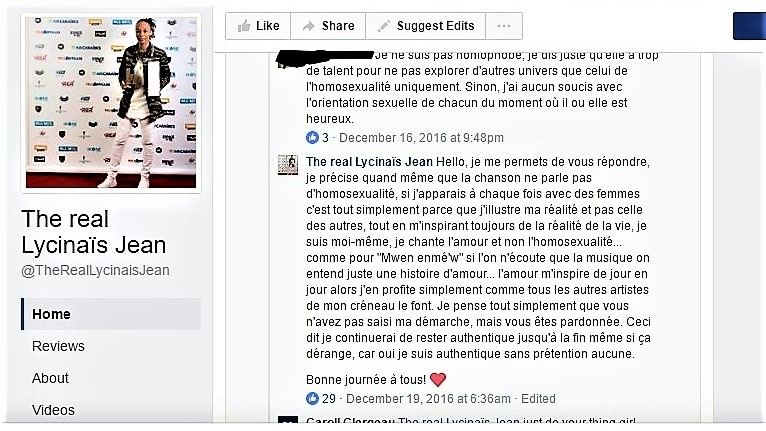
The comments read as follows:
“Follower: I am not homophobic, I’m just saying that she has way too much talent to only focus on homosexuality. Otherwise, I have no problem with anyone’s sexual orientation as long as they are happy.
Lycinais: Hello! If I may, allow me to point out that the song does not talk about homosexuality. If I am always featured with women, it’s because I’m illustrating my reality and not others’, while taking inspiration from life. I stay true to myself, I sing about love and not homosexuality…
Just like in “Mwen enmé w”, if we only listen to the song, we only hear a love story…Love inspires me every day so I try to take advantage of that, just like many other artists evolving in my world. I believe you simply did not understand my approach, but you are forgiven. Having said that, I will remain true to myself till the end, even if it bothers some people. Because yes, I am authentic, without any pretention.
Have a great day! <3”
I have found this message particularly important not only because of the significance of staying true to oneself as a queer artist, but also because this type of mediatic representation is a solid argument against homophobic rhetoric according to which queer relationships would be purely sexual and unfit for love or any other profound feeling.
Of course, there is no denying the fact that there is a certain privilege in being able to “illustrate one’s reality” and staying true to oneself so publicly. In the world, the number of people who can freely do so are still in the minority. However, for artists like Lycinais Jean who want and can do it, it is very much appreciated.

